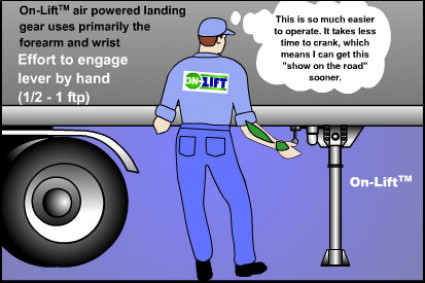
Roadshows are the latest trend in the corporate world to promote products or services effectively. Businesses can use it to build awareness, relationships, and interest in their offerings across regions. Conducting roadshow events offers multiple benefits for businesses and organizations. These are the powerful marketing or promotional tools to achieve the ultimate goal of an organization.
Some of the key benefits of conducting roadshow events are:
Increased Brand Awareness: Roadshows allow companies to take their brand on the road and target audiences. This helps make more people aware of the company's products or services..
Market Accessibility: These events provide an opportunity to enter new markets or strengthen the company's presence in existing ones. By directly engaging with local audiences, businesses can better understand the market and gain a competitive advantage.
Face-to-face engagements: Face-to-face events are great for meeting potential customers, investors, partners, and stakeholders. Personal engagement builds trust, strengthens relationships, and allows immediate feedback and clarification of doubts.
Product/Service Launch: These are the excellent platform for launching new products or services. With product launching, businesses can create excitement and generate buzz among customers.
Lead Generation: Companies can generate qualified leads. During the event, companies can understand who are interested in their products or services and want to become customers or partners.
Opportunity for Sales: businesses have direct selling opportunities with a successful event. Interested attendees may purchase or place orders following the event.
Investor Relations: For publicly traded organizations, roadshows are essential for connecting with potential investors and for presenting them with financial performances and growth strategies.
Media Coverage: Well-organized roadshows can attract media attention and thus enhance publicity. This media exposure can extend the reach of the event more than its physical presence.
Networking and Partnerships: companies gain networking opportunities with industry peers, potential partners, and local businesses. Strategic partnerships indulge mutual growth.
Customer Insights: Interacting with customers face-to-face during events helps businesses to gain valuable feedback and insights. Businesses can understand customer behavior and their preferences. It leads to product improvement and marketing strategies.
Beat Competitors: Engaging and well-executed events can help a brand stand out from competitors. It helps businesses to emphasize on their individuality and brand value.
Employee Motivation: Roadshows can be highly motivating and rewarding for the team involved. It boosts the confidence of team members and grows a sense of pride for being a part of the business.
Long-Term Impact: These occurrences can leave a lasting impact on attendees. Positive experiences and memorable interactions lead to long-term brand loyalty and word-of-mouth referrals.
Versatility: Roadshows are tailored to suit various objectives and budgets. They can be scaled up or down based on the needs and resources of the business.
Here are ten crucial points to plan and execute a successful roadshow event:
Define Objectives and Target Audience
- Clearly summarize the specific objectives you want to achieve through the show, such as launching a new product, increasing sales, attracting investors, or expanding market reach.
- Identify your target audience based on the objectives. Understand their preferences and interests to tailor the event content accordingly.
Create a Detailed Plan
- Plan the duration, dates, and locations for each stop.
- Develop a comprehensive budget, including road show vehicles, venue rentals, marketing materials, staffing, and other costs.
- Employ a dedicated team and assign the roles and responsibilities to team members for a smooth execution.
Make Engaging Content
- Customize your content with the preferences and needs of each target audience.
- Create attractive presentations, product demonstrations, and interactive communication to capture the attention of participants and leave a lasting impression.
Implement Technology and Digital Tools
- Use digital marketing strategies and create buzz before the event, including social media, email campaigns, and online advertisements.
- Make the optimal use of event management platforms and mobile apps to streamline registration, feedback collection, and engagement during the show.
Secure Ideal Venues and Logistics
- Choose easily accessible venues having sufficient capacity and a relevance with your brand image.
- Handle logistical challenges by coordinating road show transportation, accommodations, and other essential arrangements for the team.
Unite with Partners
- Identify potential partners, sponsors, or local influencers who can augment the reach of the event.
- Join with partners to enhance the experience through joint presentations, giveaways, or promotions.
Staff Training and Preparation
- Train your team to deliver consistent messages and presentations.
- Prepare the team to handle various scenarios, including tough questions and unexpected situations.
Measure and Analyze Performance
- Establish performance indicators that support with the roadshow objectives.
- Track and analyze data on attendance, lead generation, customer feedback, and media coverage to assess the success of the show.
Follow-Up and development
- Implement a robust follow-up strategy to stay connected with leads and prospects generated during the event.
- To build stronger relationships with potential customers, follow up on personalized communications.
Road Show Vehicles
- To achieve success in your promotional events, choose luxury road show vehicles with seamless performance.
- Book the most luxurious road show vehicles well in advance to avoid unforeseen stress.
- Post-roadshow reviews will help your team identify strengths, weaknesses, and areas for improvement. You can refine your future approach by considering these factors.
Planning and executing a successful corporate roadshow event requires detailed preparation, effective communication, and a keen understanding of the target audience. By focusing on the issues like, business objectives, engaging content, technology, and joining with partners, businesses can maximize the impact of their events and achieve their desired outcomes. Regularly analyzing performance, following up with leads, and learning from each event will help improve your strategy and ensure continuous improvement for future events. A well-executed show can significantly boost brand visibility, drive sales, and build lasting connections with customers and partners.







